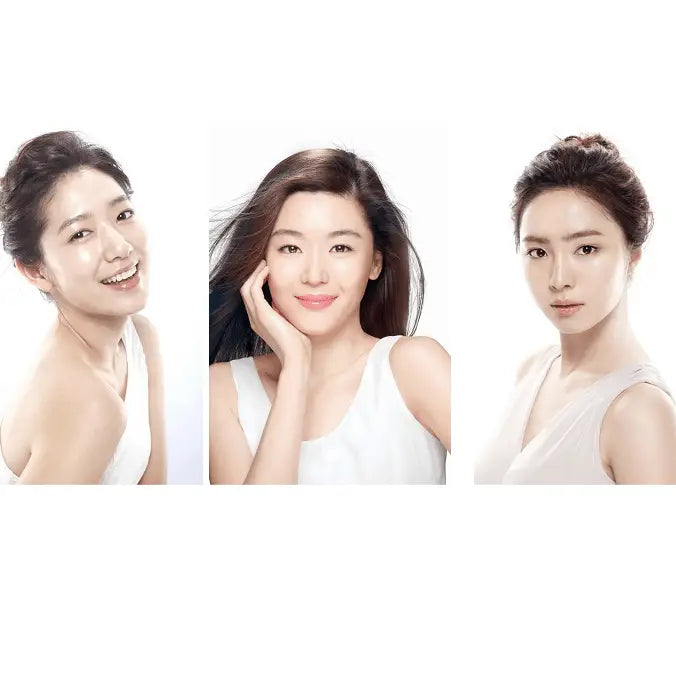Your Cart is Empty

Ever wondered why Korean women have hauntingly stunning skin? Hundreds of years ago, beauty in Korean culture is always focused on thorough skincare. It is totally established since their early childhood - programmed to start early, for them to yield flawless reward in later years.

Having a poreless skin is part of the Korean beauty standards. It is seen as a necessity rather than as an excessive pride of one's appearance. If you were to look at it as an outsider, you would probably view it as a cultural pressure. Starting obviously from how Korean women were being dragged by their mothers to community shared bathhouses for them to cast off their dead skin.
Presently, healthy skin is still being linked to beauty which shows no difference from their ancient tradition. That is why beauty standards in Korea turned as a means of socioeconomic success. They considered it as part of their cultural capital - a social asset of a person. On this note, Korea has viewed the idea to invest in cosmetic products, beauty services, and medical skin treatments.
Seeing that, it’s no wonder women in Korea treat their skin as their greatest investment. They adhere to laborious, expensive skin care and consider it to be worthy of their money and even more so of their time.
Hail to their Skincare regimen and beauty tips that are widely held globally because of its magical wonders.
The Korean skincare may sound “high maintenance” and too extensive for skeptics. However, it can never be denied that K beauty has flooded the market of the cosmetic industry and has kept their skincare business buoyant.

Korean beauty products or K beauty in a shortened term, are never slowing down. The main reason why they are ruling the global market. Having those pleasingly pretty cartoon graphics on their packaging designs and non-mainstream but fun-to-use products seemed to have caught the attention of skincare junkies. Not only that but they also have these wacky names that marked global recognition ( e.g.BB creams led the list of some other alphabetical additions). Guess you would never even have thought of using banana scented hand cream from a banana-shaped tube itself. Such a smart idea that shift traditional marketing strategies to a counterintuitive approach. Nevertheless, it certainly gave a scratch on the surface of the beauty industry.
Moreover, weird products like sleeping packs, seaweed face masks, snail slime, waterless creams, pore masking, and fermented products, happens to give us more reasons to fall in love with South Korean products. Not to mention their highly known essences (serums), ampoules, moisturizers, lasting sun protection, scrubs, and BB blemish balm creams which made a massive effect and hits the cosmetic shelves of western countries in a wave for a relatively short period of time.
Another key point that made these magical products a matchless hit is because of its famed 10 step full routine. This multi-step process looks so laborious but gives a “no regret” decision if you submit yourself wholeheartedly. Notably, current K beauty users can attest to that.
How does Western skincare approach differ from Korean?
What made Korean skincare very distinct is its way of achieving beauty. With Americans, a three-step beauty regime is good enough for as long as it includes cleansing, toning, and moisturizing. Koreans on the other hand, have to religiously follow the condensed morning and nightly skincare routine.Yes, a very long process but surely gives assurance to users to reap amazing results in the long run.
Also, K beauty products also owe its popularity to some of its ingredients like egg yolk, maple tree sap, bamboo and snail extract. Surely these are not commonly found in Western products.
Furthermore, Korean skincare has this philosophy that is all preventive. It focuses more on prevention rather than the skin treatment plan. For this reason, Korean women were already developing routines as early as their teenage years.
In contradiction, a western approach is more on treating skin damage and taking all the benefits from one product alone. A total opposite of Korean approach which takes all the possible advantage of different skin care products.